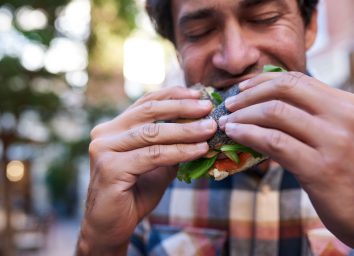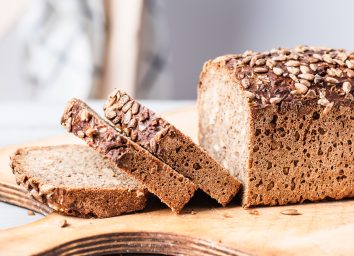Dangerous Side Effects of Eating White Bread, According to Science
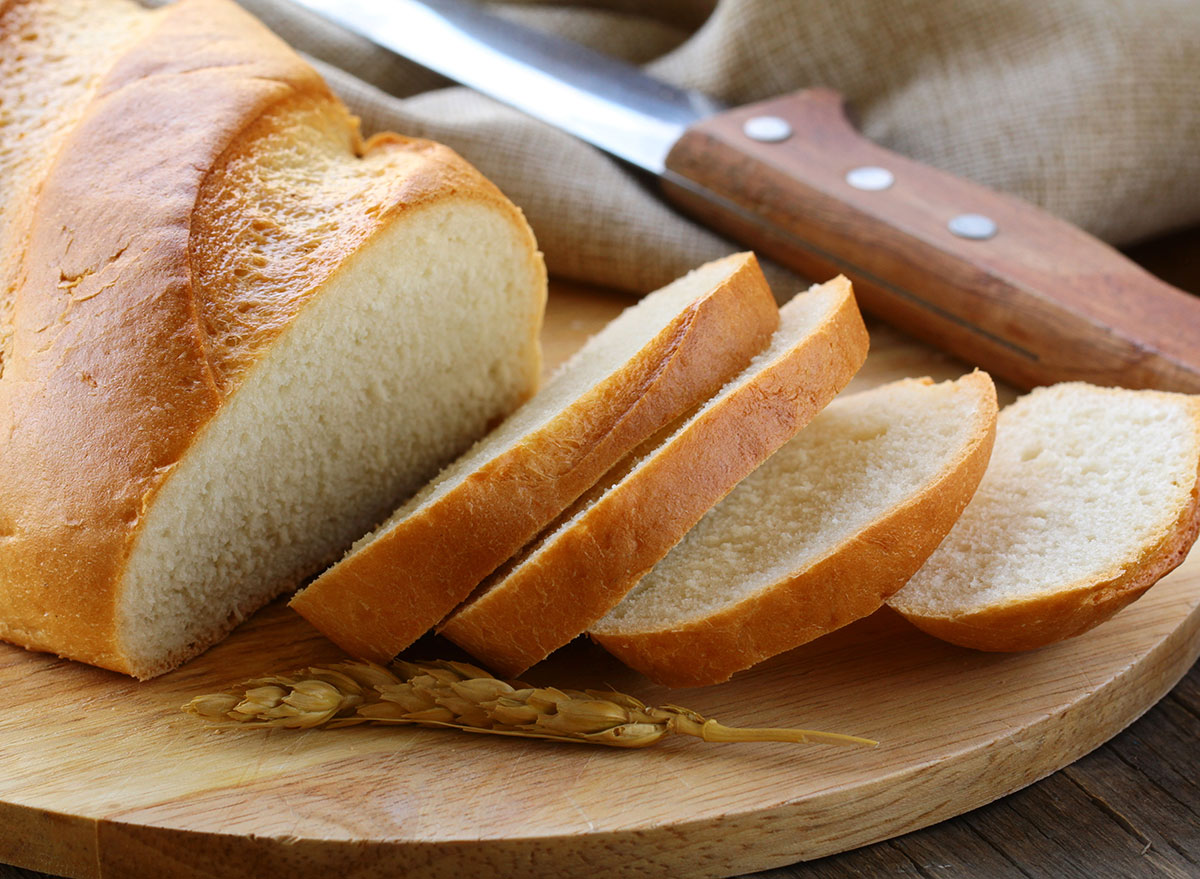
There are few pleasures as satisfying as going into a bakery and picking up a loaf of freshly baked French bread. Indulging in white bread options such as a croissant or even white pasta (think, linguine and farfalle) is a true treat for some. However, far too many Americans often overconsume white bread, which could lead to various health complications—including these dangerous side effects of white bread.
Below, we've detailed just five health issues you could experience from eating too many servings of white bread on a daily basis, so you know what to look out for. And then, don't miss The 7 Healthiest Foods to Eat Right Now.
You could get constipated.

White bread is made with processed grains, as is white rice, white pasta, and many pastries and baked goods. When a grain is processed, that means the bran and germ parts of the grain have been removed. Here's where constipation can come into play because bran (think Bran Flakes cereal) is the fiber-containing part of the grain. Wheat bran in particular contains insoluble fiber, which Sydney Greene, RD has explained to Eat This, Not That! before is the type of fiber that doesn't dissolve in fiber. In other words, it moves through your digestive tract without being absorbed or broken down.
"This is good news for anyone who struggles with constipation because the undissolved fiber adds bulk to stool and decreases the time it takes [for] food to travel from your mouth to the other end, helping things pass through," she says.
So, you can see how without this key nutrient, you may begin to feel "backed up" over time. If this happens, here are 20 Easy Ways to Add Fiber to Your Diet to help you.
Your blood sugar levels could spike.

Foods like white bread, croissants, and pastries all have a very high glycemic index (GI), which means that they release glucose (sugar) quickly and can cause a spike in blood sugar levels. Low glycemic foods, on the other hand, release glucose slowly, which allows blood sugar levels to remain steady. If you have type 1 or 2 diabetes, eating white bread often can be dangerous because it could lead to regular spikes in blood sugar.
If blood sugar levels get high enough, you could enter what's called a hyperglycemic state. Essentially, the longer blood sugar levels remain high, the more serious the health complications can be. Long-term health issues include cardiovascular disease, nerve damage (also known as neuropathy), and kidney failure, just to name a few.
Did you know This One Fruit Can Help Lower Your Blood Sugar?
You could become overweight.
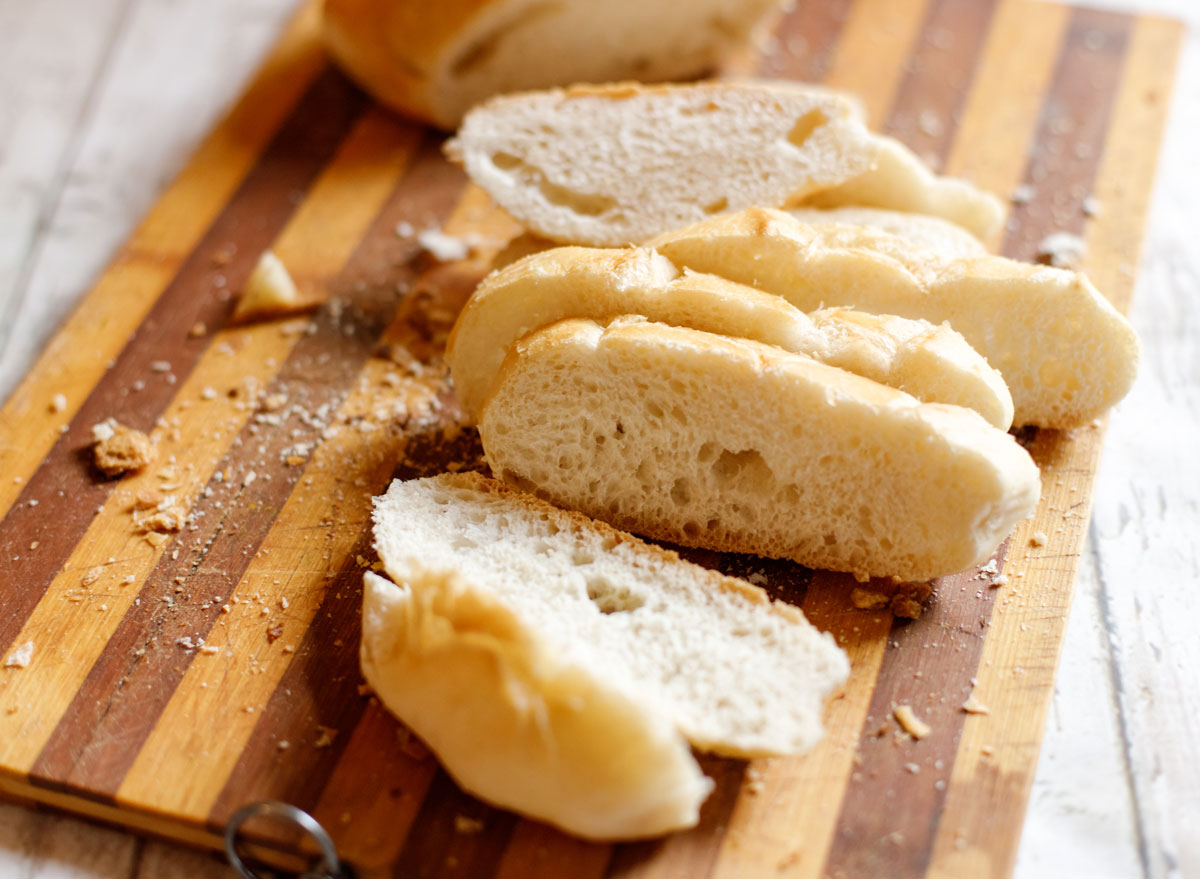
Another one of the side effects of eating white bread often is that you could be overeating and don't even know it. One study suggests that eating foods with a high glycemic index (GI), such as white bread and desserts, can lead to increased hunger. This, in part, can lead to overeating and weight gain. Another study demonstrated a connection between high GI foods and increased body weight. Consider limiting your white bread intake to avoid the risk of consuming more calories than your body requires.
Get even more healthy tips straight to your inbox by signing up for our newsletter.
Your skin could breakout.

Yep, eating that PB&J on white bread every day for lunch could be the reason your skin is constantly flaring up. Why? Believe it or not, it goes back to the glycemic index. According to the American Academy of Dermatology Association (AAD), various small studies suggest that following a low GI diet may reduce the amount of acne you have in part because it eliminates spikes in blood sugar.
Why is this important? When your blood sugar spikes, it causes your body to produce more sebum, which is an oily substance in your skin. In addition, blood sugar spikes also cause inflammation to appear throughout your body and both sebum and inflammation are culprits of acne formation.
For more, check out The 6 Foods That Are Ruining Your Skin, According to Research.
You could be at higher risk of stroke.
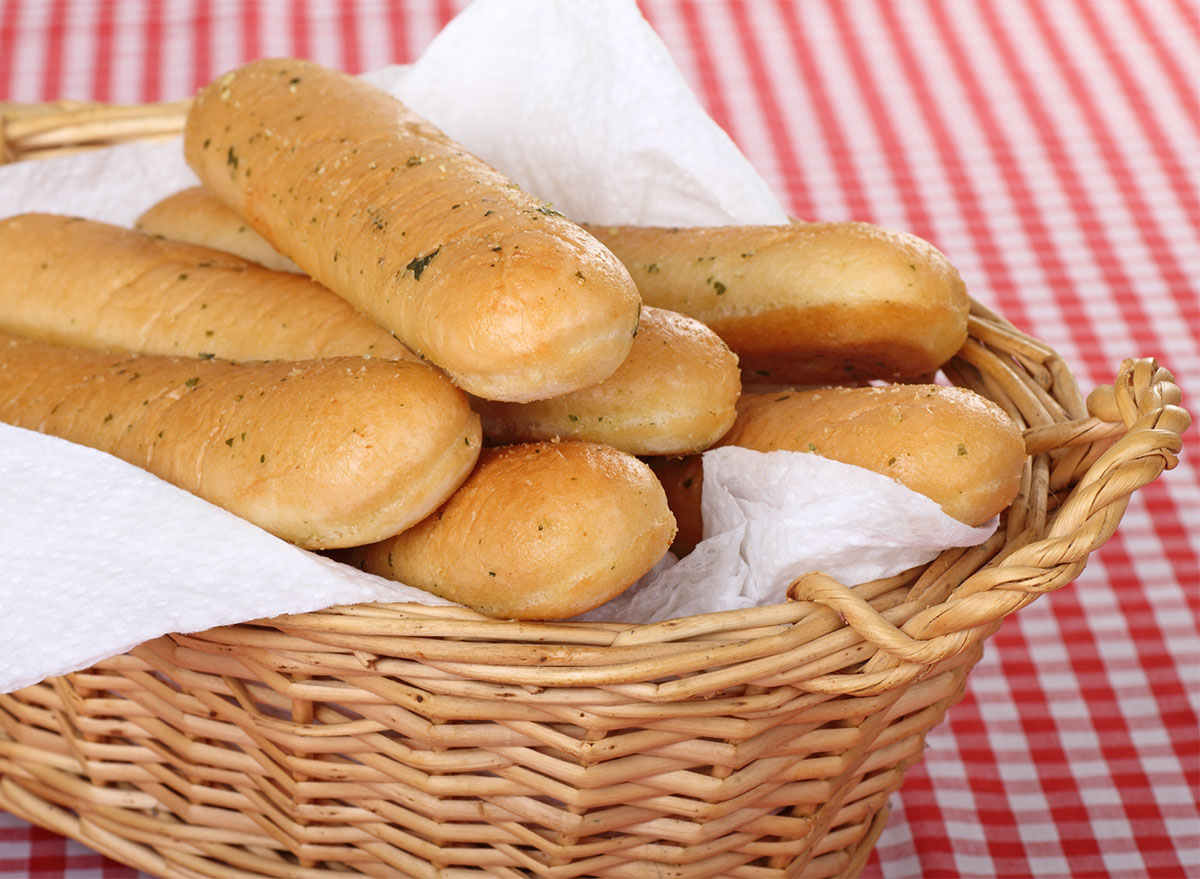
A new study published in the British Medical Journal suggests that eating a high amount of refined grains—so quite literally white bread, breadsticks, croissants, breakfast cereals, crackers, you name it—is associated with an increased risk of major cardiovascular disease, stroke, and heart attack. More specifically, those who ate more than seven servings of refined grains per day had a 47% higher risk of stroke.
So, have we convinced you to cut back on the white bread? Now, be to check out 10 Crackers to Always Leave on Grocery Store Shelves so you know which brands to steer clear of.
